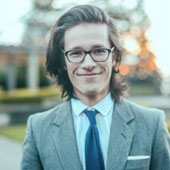This is the first Workshop for the COMPROP project, and it will be organized as a pre-conference to the 2016 International Communication Association meetings in Fukuoka, Japan, on June 8th.
Workshop Theme
Recent research has revealed that political actors are using algorithms and automation in efforts to sway public opinion. In some circumstances, the ways coded automation interacts with or affects human users is unforeseeable-even by the software engineers who write such algorithms. In others, individuals and organizations work to build software that purposefully targets voters, activists, and political opponents. Politicized social bots are one version of potentially malicious automated programs, discriminatory algorithms are another. Understanding how technologies like these are used to spread propaganda, engage with citizens, and influence political outcomes are pressing problems for scholars of communication.
This preconference seeks to address these problems and explore a broad range of interdisciplinary questions related to algorithms, automation, and politics. To date, what impact have automated scripts on global social media services had on political discussions and current affairs? Who produces these scripts, or what are the conditions in which innovations in computer science and engineering get repurposed for political means? Is there a demonstrable impact of algorithms and bots upon news consumption? What is the evolutionary trajectory of this field of computer science, and what are the mechanisms for improving public literacy, generating careful policy oversight, and preventing the abuse of social networking technologies. It will be important to work with concrete case studies and examples of such manipulation, and it will be critical to draw theory from both political communication and science and technology studies to explain these cases.
We will consider how political automation has evolved, potential futures for such technology, and ways citizens, scholars, journalists and policy makers can respond. We invite researchers interested in the intersection of communication, technology and politics to apply. All methodologies and theoretical approaches are welcome.
Submission Details: To apply for this preconference submit a relevant extended abstract of 500-800 words to samwooll@uw.edu by 12 February 2016. Accepted participants will be expected to submit an unpublished 4,000-6,000 word manuscript by 1 May 2015. After the event we hope to include preconference participants in the production of an edited volume on this subject.
Registration, Attendance and Logistics: This conference is free for accepted participants. We are seeking financial support to contribute to participants’ costs. Attendees are in charge of booking their own flights to and from the event. Organizers are providing two nights in the hotel, the 7th and 8th of June, and 500 GBP towards each participants’ travel costs.
Schedule of Events: In the morning and early afternoon selected participants will participate in a workshop that undertakes these goals. Lunch and dinner on the night of the 8th will be provided.
